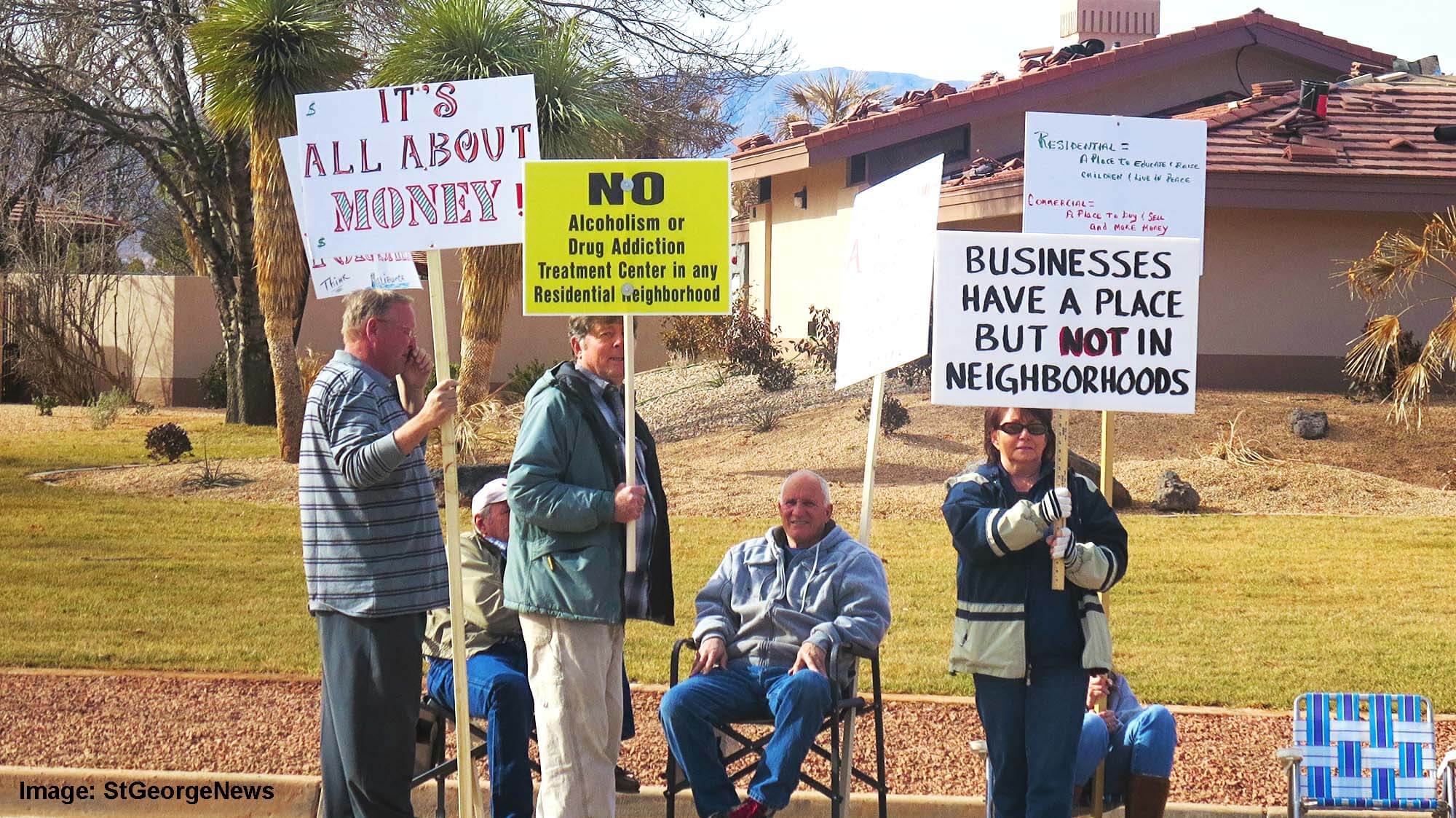
Suburban Nightmare or Healing Haven: The Rehab Next Door
Written by Jori Meyer, Posted on , in Section Inspirational
Fighting Addiction In Small Communities
In St. George, Utah, we live in one of the most beautiful places Imaginable. Over three million visitors a year come from around the country to see our city and it's surrounding areas. We have awesome hiking areas, breathtaking horizons and a thriving community of real people living real, every day lives. Unfortunately, some of those people, our neighbors, are struggling with addictions and substance abuse.
Steps Recovery Center, a locally owned and operated facility, had a comfortable answer that would appeal to anyone in that situation. They offered a home in the residential area located on Sugar Leo Road in Bloomington, an area facility residents were already familiar with, where they can recover. This was to be a 24/7 therapeutic home to help these people overcome addiction and obtain healthy life skills that they can use to better their lives. This, for some very absurd reasons, did not sit well with their neighbors. Some of the responses went so far as to say that the women and men of this disease should be "sent away" and that they can feel free to come back when they were healthy and strong enough to be an active member of society. I was flabbergasted.
Is that what you would say to your sister, your husband?
I saw people in the roads with signs, little square papers pegged in lawns protesting such a facility be near their homes - I even chuckled when I overheard someone talk about property value dropping, increased street traffic, and how having those "drug people" will have some sort of influence on the upbringing of the neighborhood.
Looking at the situation in this way ignores the chance it presents to be the image of everyday hope for these "other people", the recovering addicts. When they look out their windows or leave - always supervised, mind you - they will see you loading up your kids to go to school, kissing your wife as she heads to work or as you care for your yard, pulling out the trash cans every week. You can be that example that help them stay on track, regain control and one day achieve a home and a family of their own. Then they can become a thriving member of society, a regular neighbor like yourself. They want to be there, they aren't being forced. They are in the process of making better lives for themselves.
The patients who live in residential recovery homes will not come and go as they please, they have full day schedules of therapy, exercise and nutrition classes and chores on their property that will keep them plenty busy. If they do leave, they don't leave alone. They are enrolled into a 24/7 treatment facility meaning they are under the care of the facility. Residents will not leave the property unsupervised unless they leave the program, and only after they arrange transportation or family comes to pick them up.
Our neighbors shouldn't be worried about the people who chose to seek help and recovery, you should lose sleep over the ones that have turned away from community judgement and continue to hide their addiction in embarrassment and shame. These are people of our community, brothers and sisters we've always known and went to school with. How is that fair to channel such negative reactions to their recoveries, when they simply ask to live among us who are fortunate enough to live a life not affected by alcohol and substance abuse?
If I faced the option of getting 24/7 treatment in a live in facility, I know that I'd rather feel at home in my city, in the neighborhood I know. Nobody wants to feel like an outcast, and it only discourages those who seek help when we treat them this way. Before you make up your mind, just think about how you would want to be treated if you were at your lowest and most in need of help.
This content brought to you by Wingate Wilderness Therapy. Visit their site or call them at 1-800-560-1599.